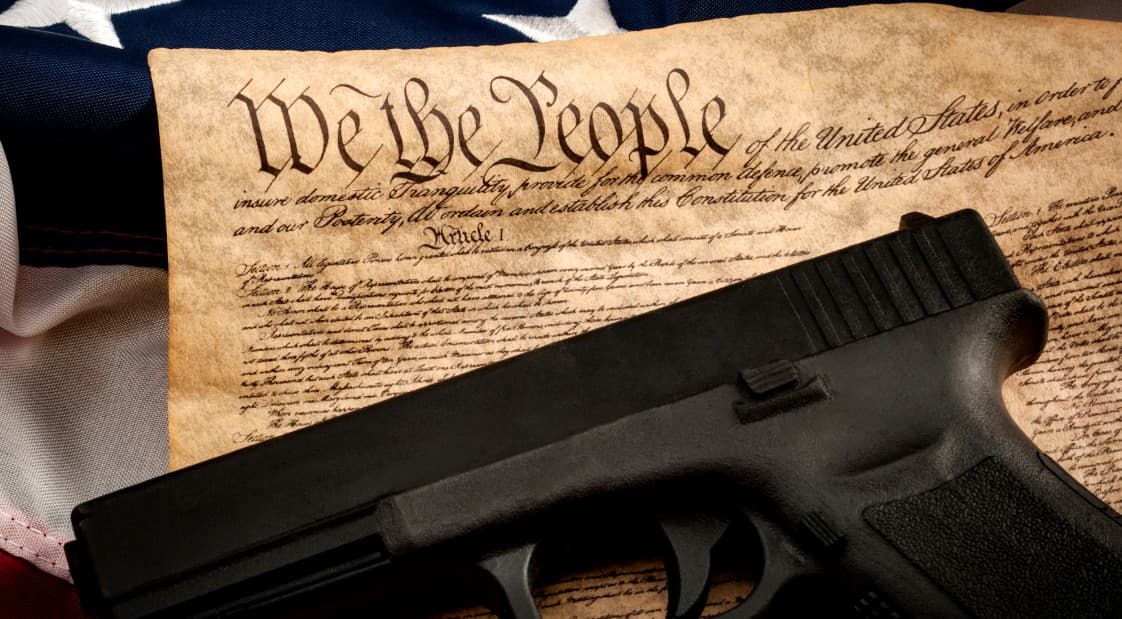If you have been convicted of a misdemeanor or felony crime and have completed your sentence (probation or prison), then you may be qualified to have your Arizona conviction set aside. In Arizona, the closest process to expungement is ARS 13-905, which deals with setting aside a conviction. Under ARS 13-905, except for certain disqualified convictions, after you have completed your sentence, then you may file an application with a judge to have your conviction set aside. You can apply even if you have multiple felony or misdemeanor convictions on your record.
Expungement defined strictly, is not the same as a conviction set aside. The expungement definition may differ from state to state, but expungement generally means that a conviction is completely erased from a person’s record. Some states like California and Illinois allow for the expungement of criminal records.
Unfortunately, there is no pure expungement in Arizona. Setting aside a conviction is Arizona’s version of expungement, but it does not completely delete the conviction from your record like pure expungement does. Arizona law considers keeping convictions part of your record a matter of public protection. But your record will also show that your conviction has been set aside.
In Arizona, who is eligible for expungement under ARS 13-905 for a conviction set aside depends on the following:
Completing your sentence not only means that your probation term or prison term is over. It also means that you have fulfilled all other terms of your sentence such as paying any fines, fees, and restitution, or completing any required counseling or community service.
If you were placed on probation, then you can only file a set aside application after you have been discharged from probation. You should submit any applicable order discharging you from probation along with your set aside application.
If you were sentenced to prison, then you must submit a Certificate of Absolute Discharge issued by the Arizona Department of Corrections along with your set aside application. The Certificate of Absolute Discharge shows that you have fulfilled your sentence of imprisonment and parole or community supervision. It does not provide any information about whether you have paid off all court-ordered fines, fees, or restitution.
Before a judge will consider your Arizona expungement application, you must have paid off all court-ordered fines, fees, or restitution. After you file your application, the court will typically contact the court clerk’s office to confirm that you do not owe any payments in your case.
In states that have a pure expungement law, many crimes are not eligible for expungement. However, because Arizona does not have a pure expungement law, most convictions in Arizona can be set aside. The types of criminal convictions that Arizona does not allow to be set aside include:
Who qualifies for expungement under ARS 13-905 also depends on a specific list of factors that a judge must consider in deciding whether to grant your conviction set aside. These factors are:
If the court grants your application, then the judge signs an order setting aside your judgment, dismisses the charge or complaint against you, and releases you from all penalties and disabilities resulting from your conviction. However, setting aside your conviction does not apply to the Arizona Department of Transportation or the Arizona Game and Fish Department. For example, a set aside conviction does not release you from any required suspension or revocation of your driver license
As you seek to move past your criminal conviction, a court order officially vacating your judgment of guilt and dismissing the charges against you can provide personal, emotional, and psychological relief. Additionally, going through Arizona’s version of an expungement process to have a set aside conviction under ARS 13-905 can also have the following benefits:
Whether you are applying for a new job or a promotion within your existing company, the presence of a criminal conviction can present a substantial barrier. Because Arizona does not allow for true expungement, your criminal record will show up in an employment background check. However, there will be a notation on your record indicating that your conviction has been set aside. Employers are more likely to favorably view the existence of a conviction that has been set aside.
Whether you are a doctor, nurse, teacher, pilot, or real estate agent, a criminal conviction can have serious implications for your professional license. If you already have a professional license, your licensing agency or board may require that the conviction be set aside. In other instances, in order to successfully obtain a professional license, the licensing agency requires that the conviction be set aside to ensure that all court requirements have been satisfied. Without true expungement in Arizona, converting your conviction to a set aside conviction for a licensed professional is a must.
In order to become a licensed contractor in Arizona, the Registrar of Contractors (ROC) will first conduct a ROC criminal background check. If an applicant has been convicted of a crime, theROC considers evidence of rehabilitation, specifically whether your previous conviction has been set aside before it grants any license.
In many instances, criminal convictions can prevent a person from being able to rent or purchase property. Criminal background checks are now widely used by landlords and banks when renting or buying property. Restrictions imposed by HOAs and insurance companies often require a conviction be set aside in order to obtain housing or loans. If Arizona had a true expungement law, then your conviction would not even show up in a background check. However, without expungement, a set aside conviction can help you with housing opportunities.
It would be ideal if you could expunge a criminal conviction from your record when dealing with child custody issues. However, you can lessen the impact of the existence of a conviction on your record by having the conviction set aside. A conviction that has been set aside shows the court that you have been rehabilitated, and that a judge has acknowledged that fact.
Restore Civil Rights. With most convictions that are eligible to be set aside, any civil rights that were lost as a result of the conviction are restored after the conviction has been set aside. Only in limited instances is a separate application required to restore gun rights.
Arizona law requires many professions to have an active fingerprint clearance card prior to or as a condition of licensure, certification, or employment. For those with an existing or suspended Arizona Fingerprint Card, setting aside the underlying conviction can be helpful in obtaining a card by applying for a Good Cause Exception.
Because the Arizona process of setting aside a conviction is not a pure expungement process, a conviction set aside under ARS 13-905 still won’t:
Also, if you are later charged with another crime and your set aside conviction meets other legal requirements, the prosecution may still be able to use a set aside conviction to try to get a tougher sentence or to use it against you if you testify.
If you are asked whether you have any prior convictions such as on an application for employment, insurance, or a loan, then you must still give information about your set aside conviction. But you should also explain that the conviction has been set aside. The language in the court order setting aside your conviction is powerful language. The order will show that the court set aside your judgment, dismissed the charge against you, and released you from all penalties and disabilities resulting from your conviction.

At Feldman & Royle, we’ve successfully defended many clients who had cases brought against them as a result of wiretapping evidence. Below are just a couple of examples of previous clients that we have successful defended.
A felony conviction suspends your civil rights, including your right to vote, serve as a juror, and possess a gun. If you only have one felony conviction, then your civil rights (except for your gun rights) will be automatically restored after you have completed your sentence. For the restoration of gun rights, you must still apply under ARS 13-910.
Automatic Restoration of Gun Rights. However, there is some overlap in Arizona’s laws that allow you to automatically restore your gun rights through a conviction set aside without having to file a separate application to restore your gun rights.
With a conviction set aside, gun rights are automatically restored without having to wait two years after you have been discharged from probation or prison before you can normally to apply to restore gun rights.Generally, as long as your felony conviction was not for a dangerous offense (under ARS 13-704) or a serious offense (under ARS 13-706), then your gun rights are automatically restored if your conviction is set aside.
Misdemeanor Crimes of Domestic Violence. Misdemeanor convictions for domestic violence are unique in that Federal law 18 USC 922(g)(9) prohibits individuals from possessing a gun or ammunition when they have been convicted of a qualifying misdemeanor crime of domestic violence in any court (federal, state, or tribal). This federal law is commonly known as the Lautenberg Amendment. However, if your Arizona misdemeanor conviction for domestic violence is set aside, then the federal prohibition against firearm possession does not apply under 18 USC 921(a)(33)(B). So, you must set aside any qualifying misdemeanor conviction of domestic violence to fully restore your gun rights.
Under A.R.S. § 13-909, if a person was convicted of a charge of prostitution and it is found that their participation was a direct result of being a victim of sex trafficking, then the conviction can be vacated entirely, which is basically expungement. In vacating the conviction:
Each year, the expungement lawyers at Feldman & Royle dedicate free legal service hours to helping those less fortunate or deserving. As a result, individuals who meet the requirements under A.R.S. § 13-909 may qualify to have their case handled by an attorney at Feldman & Royle at no cost. Feel free to call our office to obtain further information about an expungement of your case.

If you have been convicted of a crime in Arizona, there are two main reasons why hiring an Arizona expungement lawyer and having the conviction set aside can help.
If you are living under the shadow of a prior criminal conviction, speak to an experienced expungement attorney at Feldman & Royle. The initial consultation is free.

No tags assigned to this post.